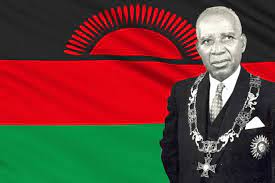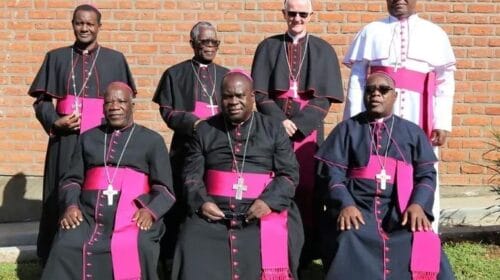One Next Step, By Sesugh Akume
There hasn’t been more relieving news coming from the National Assembly, or from the government in general, than the news of the Senate authorising, as should, the Independent National Electoral Commission (INEC) election management body, to conduct elections as they deem it best, precisely, to transmit elections results electronically as they are cast and collated at the polling centres.
Election results tend to be different from what voters expect because many times what is counted and recorded at the polling centres ends up being different when the votes from various polling centres are collated, counted, and reported. The process of announcing the winner usually isn’t transparent. It then becomes difficult to establish that the election results were tampered with and the wrong person returned. This is a major cause of voter apathy. The long term result of this and more dangerous outcome is the system of government we practise in Nigeria, a kakistocracy ie government by the worst and least qualified persons.
Had Nigeria quality too quality persons in public office with the competence, capacity, character, the courage to do the right thing, and conscience to serve as best they can, we wouldn’t be where we are, and keep complaining about the way things are going, as we do. Hopefully, with transparent elections by way of electronic transfer of election results, the people can have a better say in determining who occupies public office. Better quality persons would be elected in office, and we can start the journey to nation having a proper country, well run.
There are other issues like diaspora voting, etc which need to be looked into an implemented as soon as possible, but this is a great start.
Thumbs up should be given to INEC for staying the course on this one. And to the people for organising to insist against the National Assembly standing in the way of transparent elections, as they had in the past.
Next to credible elections is the issue of a constitutional amendment. If democracy is government of the people and by the people, for the people then, they should be able to participate in it by determining who serves them. They should also, very importantly, determine the laws by which their society is regulated. They should be able to determine what is most important to them, and how they want their society to be regulated. Critical issues shouldn’t start and end with the 469 representatives at the National Assembly, but from the people directly. This is how to build a country and a nation. By making the not feel but indeed belong and own the processes.
It’s why it is critical for room to be made in the constitution for referendum, a means whereby the people can vote and decide on issues that are important to them. As of now, the constitution doesn’t provide for one. But it is essential it does.
Various suggestions have been offered on how to make the country work, by amending this or that section of constitution.
Most of these are never quite taken board in all the numerous constitutional amendments done every 4 years since 1999. The people have not been heard from, therefore, many of these suggestions remain unimplemented. Not implementing these make the problems grow larger and get more complicated.
Look at the issue of security and policing. In refusing to listen the government commits or endorses illegality in attempt to solve this problem. Outfits like Amotekun, Hisbah, Livestock Guards, Ebube Agu, and the numerous other security agencies set up by the states are unconstitutional, illegal because the constitution is clear that states cannot make laws with respect to security. But is this workable, is it sustainable, is it what the people want?
There are numerous instances of where the constitution as is, stands in the way of progress as against enhancing it. A referendum provides an opportunity to hear the people out, and provides an channel for them to ventilate. Such engagement eases tension and angst in the land. It gives the people a sense of ownership. After all, the constitution itself says sovereignty lies in the people from whom government itself derived its authority. Why then can’t the people be listened to directly? Eritrea, Ethiopia, Uganda, South Africa, and many other countries on the continent have this provision in their constitution and exercise it. Why shouldn’t Nigeria?
If there is one more thing this 9th National Assembly can do, further to empowering INEC to carry out electronic transmission of results, is to simply provide for a referendum in the constitution, among whatever other amendments they hope to carry out this time.
But, this won’t happen by citizens keep quiet. The people have to organise and keep at it until this too is done. For this reason, everybody who can read and has Internet access will do well to sign the #FixPolitics (in collaboration with 100 other organisations of like mind) online petition and urge others to do same, and even chip in a little amount to push the campaign further, so that as many Nigerians that have access to the Internet can lend their voices to this critical endeavour of a lifetime, making the National Assembly including referendum in our constitution.
Please sign the petition here: https://www.change.org/p/petition-to-amend-nigeria-s-1999-constitution-to-provide-for-a-referendum
Sesugh Akume, a public policy analyst, wrote from Abuja. He is reached by [email protected]





